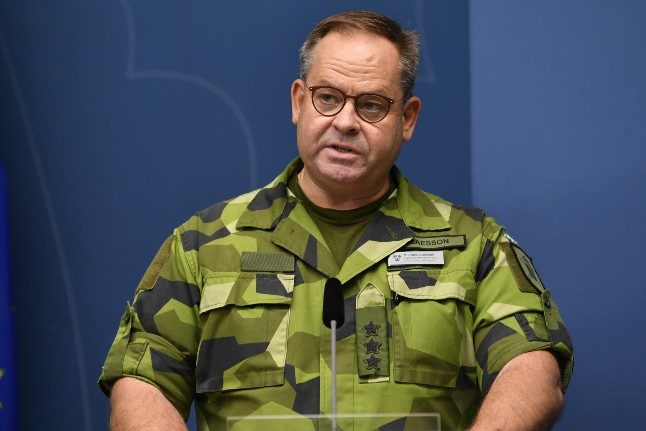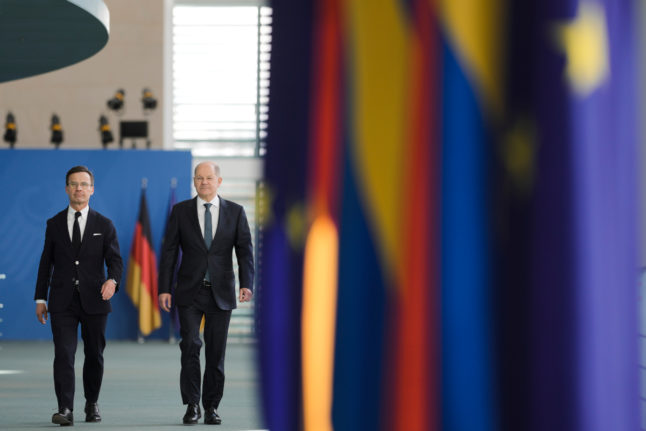“There is a range of possible Russian retaliatory actions which could be aimed at Sweden,” Lieutenant General Michael Claesson, the Swedish Armed Forces’ chief of operations, said. “[Some of the things] in the Russian toolbox include influence operations, discrediting important individuals, cyber-attacks, sabotage, and more.”
Claesson was speaking at the first of the Swedish Armed Forces’ new weekly press conferences on the security situation, which will be broadcast directly at 3pm every Thursday for so long as the Russian invasion is destabilising the region.
The press conferences will serve a similar function to the daily and then weekly press conferences that the Swedish Public Health Agency used to keep the population updated during the Covid-19 pandemic.
Claesson said that the unexpectedly united response from the EU and from Nato had led to a heightened tone in Russian rhetoric and an increased risk of concrete retaliatory actions.
But he also said that the judgement of the Swedish Armed Forces was that Russia’s invasion of Ukraine was not going to plan. “The Russian weaknesses and Ukrainian resistance provide hope,” he said.
While the invasion had brought some new things to light, such as Russia’s effective control of Belarus and its perhaps closer than expected links to China, he said that the Armed Forces did not currently see any unexpected military activity in the immediate vicinity of Sweden.
Jan Kinnander, head of the Security Office at Sweden’s Military Intelligence Service (Must), said that the intelligence threat against Sweden remained unchanged at the level it has been at since 2016, the fourth-highest level on a five-level scale.
“This isn’t something we have increased now, rather we have seen that this threat has existed for a long time. We increased the level of threat in 2016, and we can see that it is still at that high level,” he said.
“When we discuss the collection of intelligence, we mean technical intelligence such as signal-tracing or cyber operations with the aim of securing information, and we mean a person-based collection of information, which essentially refers to making contact with individuals and trying to gain information.”
He said that he believed that the recent outage on the Civil Contingencies Agency may have been the rest DDOoS attack from a foreign power, although he said it may also have simply been a technical fault.



 Please whitelist us to continue reading.
Please whitelist us to continue reading.
Level of alert boosted as from……2016 !!!!
Did anyone listen in Europe ?
Nope…….even when a country decides to reinstate conscription……and now what ??
A bit tardy !!